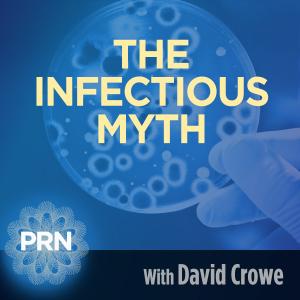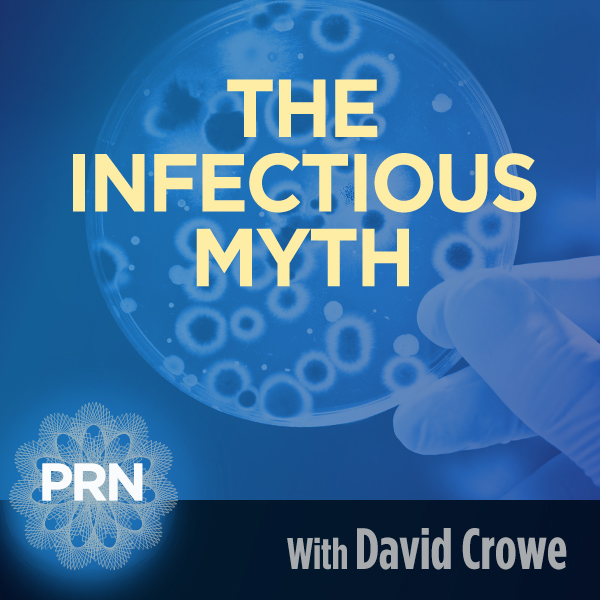Episodes

Tuesday Aug 26, 2014
Tuesday Aug 26, 2014
Episode 26 looks at the issue of infection control in dentistry. You might think that this is a dry issue of interest only to dentists, it actually provides us with a lot of information about the low risk of infection by the supposed hepatitis B and C viruses and HIV even when there is plenty of blood to provide a convenient route. Dr. John Hardie discusses several cases of dentists and other medical professionals who had substandard infection control and yet did not leave a trail of infected patients behind them.
David and John spend a lot of time talking about the Dr. Acer case from the late 1980s, a dentist who the CDC tried hard to paint as the first (and so far only) dentist to ever transmit HIV to a number of patients. Even though Acer was HIV-positive, the worst possible situation, nobody could ever figure out how he might have transmitted HIV, and there was considerable evidence that his HIV-positive patients got their antibodies in some other way. His most famous patient was Kimberley Bergalis, a young woman whose emaciated figure testifying to congress became one of the most famous images of the early AIDS panic. But she was also taking high doses of the drug AZT, which can produce those very symptoms.

Friday Aug 15, 2014
Infectious Myth - Kill bees, kill us - 08/12/14
Friday Aug 15, 2014
Friday Aug 15, 2014
Episode 25 is not talking about killer bees, but about bee killers, the neo-nicotinoid systemic pesticides that most knowledgeable people outside the chemical manufacturers are blaming for colony collapse disorder.
David’s guest is Dave Hackenberg, who owns a company that trucks large numers of honeybee colonies around the United States to pollinate crops, when and where they are needed. They talk about the importance of bees to many crops in the United States that will not produce seed without a pollinator, and how the concept of a systemic pesticide fills the entire plant with poison, including the nectar and pollen that feed the bee.
Dave Hackenberg got serious about this problem when he lost 80% of his hives in the 2006 season, and his research led him to believe that neonicotinoids were the cause. Since then he has lobbied tirelessly, and awareness of this problem is certainly growing, thanks to him, other bee-keepers, environmentalists, and a few researchers who are brave enough to withstand attacks from the chemical companies.
Politics is a big problem, and with industrial agriculture lobbyists funding so many politicians, getting political action is difficult. Even supposedly neutral agencies like the EPA (Environmental Protection Agency) and USDA (US Department of Agriculture) appear to be acting mostly in the interests of the chemical and seed companies. There are several lawsuits against the EPA and other government organizations for rushed and inadequate approval of pesticides.

Tuesday Aug 05, 2014
Infectious Myth - Aspartame with Woodrow Monte - 08/05/14
Tuesday Aug 05, 2014
Tuesday Aug 05, 2014
In Episode 24 David talks with Woodrow Monte, a retired PhD food scientist, with 25 years experience teaching and researching at Arizona State University. Since the 1980s Woodrow has been very concerned about the massive quantity of Aspartame in our food supply, particularly in diet sodas.
Each molecule of aspartame breaks down quickly in the body to produce a methanol molecule. If there is no ethanol (drinking alcohol) in our body, the body will convert it to formaldehyde, which is highly reactive, and causes an inflammatory reaction. He believes that it is this that causes the artery clogging that produces heart disease, and that causes the damage to veins in the brain that characterizes alzheimers and Multiple Sclerosis (MS). He also believes that methanol is responsible for many birth defects, and also some types of cancer.
Although methanol is also found in canned fruits and vegetables, and particularly in canned juices, and is also absorbed from inhaling cigarette smoke or wood smoke, the vast majority of methanol consumed today is from aspartame.
Methanol is highly toxic to humans. From one teaspoon to one tablespoon will kill a person, depending on their size, although it takes a long time for the methanol to be converted to formaldehyde and start the damage in the body. Ironically, the only real antidote to methanol is ethanol, which blocks the conversion to formaldehyde, which may explain why people who consume 1-2 drinks of alcohol a day are healthier than both teetotallers and over-drinkers.
People can find more about this issue on Dr. Monte’s website, http://whilesciencesleeps.com, including a freely available chapter on birth defects available in text or audio book format.

